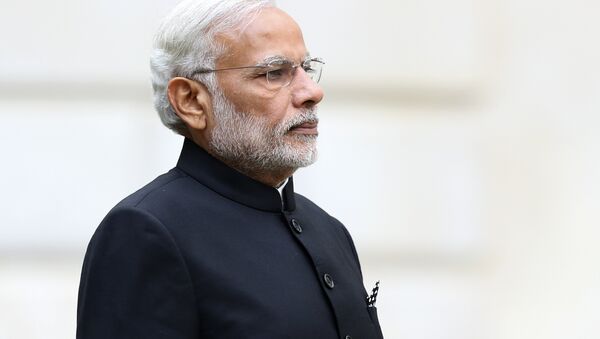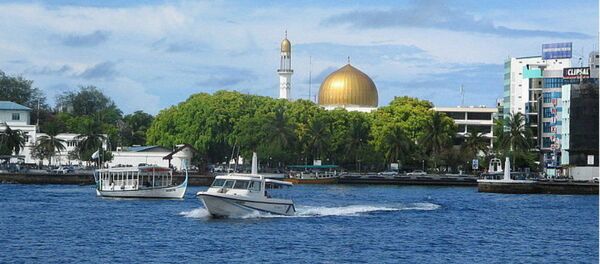As the Maldives, the archipelago nation in the Indian Ocean, prepares to elect a new president in September, India has expressed concern over the transparency of the polling in view of the prevailing political turmoil. Indian Prime Minister Narendra Modi has suggested that Maldivian President Abdulla Yameen should first ensure the full restoration of democracy and the independence of the judiciary before seeking a fresh mandate.
READ MORE: India Downplays Chinese Threat in Indian Ocean, Says No Tension With China
"We hope that the Maldives government will ensure the early resumption of the political process and allow democratic institutions, including the judiciary, to function independently in a fair and transparent manner. This will create a conducive environment for the presidential election," Indian Prime Minister Modi told the English Daily Times of India.
India and the Maldives had recently witnessed a sharp deterioration in their relations, with New Delhi taking a strong stance against President Abdulla Yameen's government cracking down on political rivals and imposing a state of emergency.
India has called on President Yameen to free political prisoners, including former President Abdul Gayoom and Supreme Court justices.
READ MORE: Maldives Rejects Reports of Visa Denial to Indians Amid Slump in Relations
A South Asian affairs analyst is of the opinion that India's disenchantment with the Maldives also stems from the fact that China has managed to make its way into the affairs of the Maldives.
"Abdulla Yameen is not India's favorite. In fact, India supported former President Abdul Gayoom. India also supported Abdul Nasheed, but India's relations with the Maldives dipped after Yameen became president and it also coincided with the increasing influence of China in the Maldives. The Chinese are involved in several infrastructure projects in the Maldives and there are reports that Yameen has given some islands to China to develop. Therefore, the Maldives are under Chinese influence and taking decisions to appease them," Ashok K Behuria, senior fellow and coordinator at the South Asia Centre, IDSA, told Sputnik.



